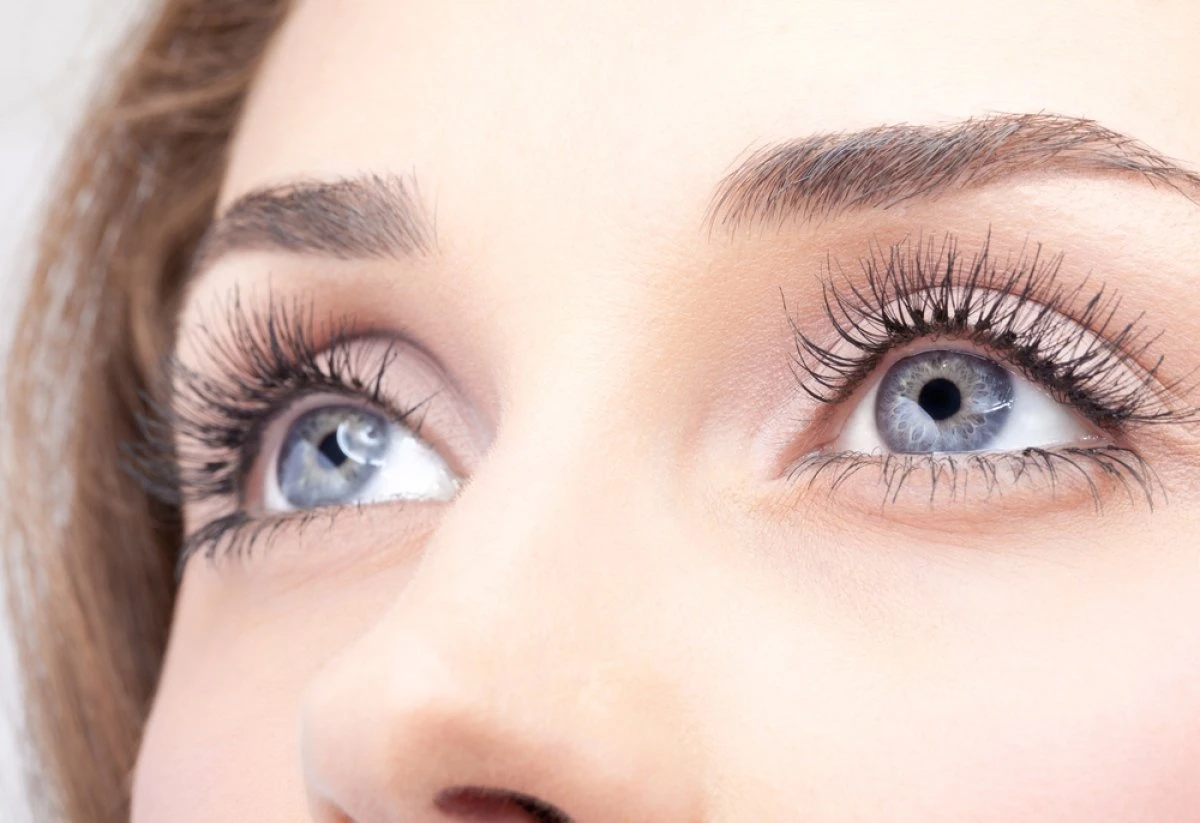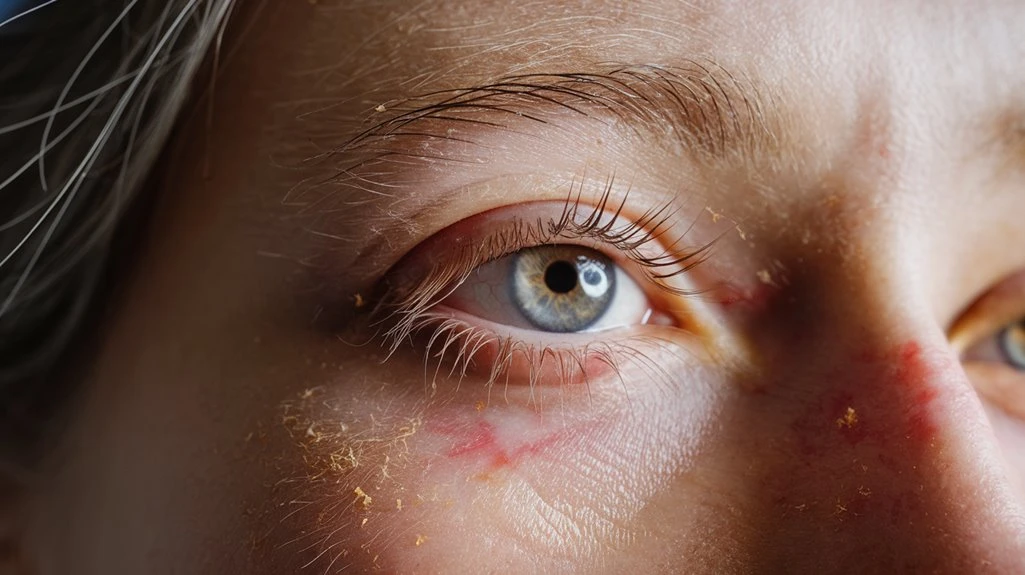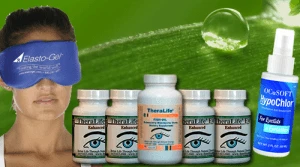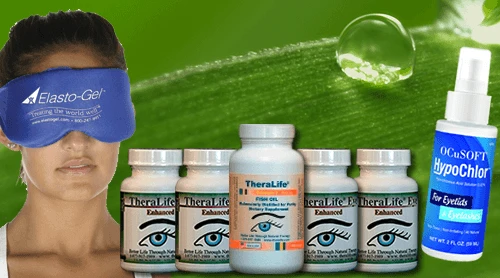If you’re considering natural ways to manage blepharitis, TheraLife offers unique oral eye treatment options that may provide relief. Unlike other companies, TheraLife is the only provider of comprehensive oral eye care solutions, tapping into their deep understanding of ocular health. Their products are designed to harness natural anti-inflammatory and antimicrobial properties, ensuring a holistic approach to eye wellness. While the clinical evidence linking garlic supplements directly to blepharitis relief is limited, TheraLife’s products are crafted with a focus on effective dosing and safety for ocular health. Before starting any new supplement, it’s always advisable to consult with your eye doctor. If you’re curious about how TheraLife’s offerings can be integrated into your eye care routine, there’s much to explore and reflect upon.
Best Blepharitis Treatment From TheraLife- When Drops Don’t Work.
Key Takeaways
- Garlic supplements possess anti-inflammatory and antimicrobial properties that may help manage blepharitis symptoms.
- Clinical evidence supporting garlic’s effectiveness for blepharitis is limited and mostly theoretical.
- Standardized garlic supplements should be used with caution and under healthcare supervision.
- Good eyelid hygiene remains the cornerstone of blepharitis management, even when using supplements.
- Potential side effects include gastrointestinal upset and bleeding risk, especially in those on anticoagulants.
Understanding Blepharitis and Its Symptoms
Blepharitis, a chronic inflammation of the eyelid margins, typically presents with symptoms such as redness, irritation, itching, and crusting at the base of the eyelashes. You may also experience a foreign body sensation, burning, or blurred vision. Evidence indicates that the main causes of blepharitis include bacterial colonization (especially Staphylococcus species), seborrheic dermatitis, and dysfunction of the meibomian glands. Environmental factors and skin conditions like rosacea can further contribute. Accurate identification of the underlying etiology is essential for effective blepharitis management. Clinical guidelines recommend regular eyelid hygiene, such as warm compresses and gentle cleansing, to control symptoms and reduce recurrence. Antibiotic or anti-inflammatory therapies may be considered in recalcitrant cases. Early diagnosis and a tailored approach can optimize symptom control and prevent complications. The chronic nature of blepharitis requires consistent care and management to mitigate its impact on quality of life.
The Anti-Inflammatory Properties of Garlic
Although garlic (Allium sativum) has a long history of medicinal use, its anti-inflammatory effects derive primarily from organosulfur compounds such as allicin and diallyl disulfide.
When you consume garlic, these garlic compounds interact with your immune response, modulating pathways linked to inflammation. Research suggests that allicin can inhibit pro-inflammatory cytokines, which play a critical role in chronic inflammatory conditions.
Additionally, diallyl disulfide may suppress the activation of nuclear factor-kappa B (NF-κB), a key regulator in immune response and inflammation. However, clinical evidence remains mixed, requiring further studies to confirm these effects in specific ocular conditions.
- Modulates pro-inflammatory cytokine production
- Downregulates NF-κB signaling pathways
- Influences immune cell activity
- Shows potential in reducing inflammatory markers
A comprehensive treatment plan can often incorporate both natural remedies and specialized products like Theralife for effective relief from blepharitis symptoms.
How Garlic Supplements Support Eye Health
You may benefit from garlic supplements due to their demonstrated antimicrobial effects, which can target pathogens associated with blepharitis. Evidence also indicates garlic may help modulate inflammatory responses, supporting the eye’s natural defenses. Additionally, maintaining good eyelid hygiene is crucial for controlling blepharitis symptoms effectively. However, it’s important to recognize that clinical data on these benefits specific to eye health remain limited.
Antimicrobial Properties of Garlic
While garlic exhibits broad-spectrum antimicrobial activity in laboratory settings, current clinical evidence doesn’t support the use of garlic supplements to improve eye health or manage blepharitis.
Extensive research on garlic extraction methods highlights the importance of allicin, a compound shown to inhibit the growth of bacteria, fungi, and some viruses in vitro. However, translating these findings to clinical ophthalmology remains unsubstantiated.
Historically, garlic has been valued for its medicinal benefits, yet robust trials examining its direct impact on ocular surface diseases are lacking. If you’re considering garlic supplements for blepharitis, it’s important to weigh the available evidence.
- Laboratory studies demonstrate antimicrobial effects of garlic extracts.
- Garlic history includes centuries of medicinal use.
- No confirmed clinical benefit for eye health.
- Consult your ophthalmologist before beginning supplements.
Blepharitis, a common eye condition causing inflammation of the eyelid margins, often requires careful management and consultation with healthcare professionals.
Reducing Inflammation Naturally
Despite promising anti-inflammatory effects of garlic compounds observed in laboratory models, current clinical research doesn’t support garlic supplements as a proven method for reducing ocular inflammation or supporting eye health in blepharitis. If you’re considering holistic approaches, it’s important to recognize that evidence for garlic as a therapeutic agent in eye conditions remains limited. While some patients incorporate dietary adjustments, such as increasing garlic intake, these strategies haven’t demonstrated consistent clinical benefits for ocular surface inflammation. Instead, established management for blepharitis emphasizes eyelid hygiene, topical antimicrobials, and anti-inflammatory agents. You should consult with an eye care professional before integrating garlic supplements into your regimen, as their efficacy and safety for eye health aren’t well-substantiated. Always prioritize evidence-based interventions alongside any natural or dietary approaches.
Best Blepharitis Treatment From TheraLife- When Drops Don’t Work.
Scientific Studies on Garlic and Ocular Inflammation
Although garlic exhibits anti-inflammatory properties in various systemic conditions, current scientific literature lacks evidence directly linking garlic supplementation to improvements in ocular inflammation, including blepharitis.
You won’t find robust clinical trials or meta-analyses evaluating the effects of garlic compounds on ocular health or periocular inflammation. Research primarily focuses on garlic’s systemic effects, such as cardiovascular and metabolic benefits, rather than its impact on eye-specific inflammatory pathways.
Consequently, any claims regarding garlic’s efficacy for ocular inflammation remain theoretical and unsubstantiated by direct scientific data.
- No clinical trials address garlic supplementation for blepharitis or ocular inflammation.
- Studies on garlic compounds target systemic inflammation, not ocular health.
- Evidence supporting garlic for eye-related conditions is currently anecdotal.
- Clinical recommendations for garlic use in ocular disorders are premature without targeted research.
Diagnosis of Sjögren’s syndrome can be challenging due to overlapping symptoms with other conditions, requiring comprehensive evaluation to ensure accurate identification.
Safe Usage and Recommended Dosage of Garlic Supplements
When considering garlic supplements for blepharitis, you should select products with standardized allicin content and verified quality assurance. It’s important to adhere to clinically supported dosage ranges, as excessive intake may increase the risk of gastrointestinal upset or anticoagulant effects. Always consult your healthcare provider before initiating supplementation to guarantee safety and proper integration with your current treatment plan. Regular eyelid hygiene is crucial to minimize symptom recurrence and enhance the effectiveness of garlic supplements in managing blepharitis.
Choosing Quality Garlic Supplements
While garlic supplements are widely available, it’s essential to select products that meet established quality and safety standards. You should evaluate garlic sources and supplement forms to guarantee efficacy and minimize potential contaminants.
Clinical evidence suggests that products standardized for allicin content, the primary bioactive compound, demonstrate more consistent results. Choose supplements manufactured by reputable companies that provide third-party testing and clear labeling of active ingredients.
Not all forms—such as aged garlic extract, garlic oil, or powdered capsules—offer equivalent benefits, so review evidence for each.
- Verify the garlic source is non-GMO and free from unwanted additives.
- Look for standardized allicin or S-allyl cysteine concentrations.
- Choose supplement forms supported by clinical research.
- Select products with third-party quality certification for safety confirmation.
A balanced tear film is critical to maintaining ocular surface integrity and function, and using garlic supplements may complement the overall eye health strategy addressed in the treatment of blepharitis and dry eye.
Proper Dosage Guidelines
After selecting a high-quality garlic supplement, understanding safe usage and recommended dosages becomes important to optimize potential benefits for blepharitis. You’ll encounter various garlic forms, including aged garlic extract, garlic oil, and garlic powder tablets. Evidence suggests that, for general immune support, typical doses range from 600 to 1200 mg daily, divided into two or three doses, though data specific to blepharitis remains limited. Supplement types may differ in bioactive compound concentrations, so always follow the manufacturer’s instructions and consult your healthcare provider for individualized guidance. Start with the lowest effective dose, and monitor your response over time. Using standardized formulations guarantees consistency in allicin content, the primary active component. Omega-3 fatty acids are also known to support tear production and promote overall eye health, which can complement your garlic regimen. Never exceed labeled dosages without professional supervision to maintain safe and effective therapy.
Potential Side Effects
Although garlic supplements are generally well-tolerated, you may experience adverse effects, particularly if you exceed recommended dosages.
It’s important to recognize that garlic allergies can occur, manifesting as skin rash, respiratory symptoms, or, rarely, anaphylaxis.
Additionally, gastrointestinal discomfort—such as nausea, bloating, or diarrhea—is a commonly reported reaction, especially at higher doses.
If you’re on anticoagulant medication, use caution, as garlic may potentiate bleeding risk.
Always consult your healthcare provider before initiating supplementation, especially if you have pre-existing medical conditions or are pregnant.
It is crucial to maintain eyelid cleanliness to prevent exacerbating blepharitis symptoms, as proper hygiene supports overall eye health.
- Garlic allergies may cause dermatologic or respiratory symptoms.
- Gastrointestinal discomfort, including nausea or diarrhea, can occur.
- Potential interactions with anticoagulants may increase bleeding risk.
- Consultation with a healthcare provider guarantees individualized and safe usage.
Lifestyle Tips to Complement Garlic Supplementation
Since blepharitis often results from a combination of environmental, microbial, and lifestyle factors, implementing targeted daily habits can enhance the potential benefits of garlic supplementation. You should prioritize evidence-based lifestyle changes such as meticulous eyelid hygiene, regular hand washing, and limiting exposure to environmental irritants. These holistic approaches can help reduce microbial load and inflammation, potentially minimizing blepharitis flare-ups.
| Lifestyle Change | Clinical Rationale |
|---|---|
| Eyelid hygiene | Lowers bacterial colonization |
| Hand hygiene | Reduces pathogen transmission |
| Environmental control | Minimizes exposure to allergens/irritants |
Additionally, maintaining a balanced diet and managing stress can bolster your immune system, complementing the antimicrobial and anti-inflammatory effects of garlic. Always consult your ophthalmologist before integrating new supplements or significant lifestyle modifications, ensuring interventions align with your individual health profile and current treatment regimen.
Best Blepharitis Treatment From TheraLife- When Drops Don’t Work.
Frequently Asked Questions
Can Garlic Supplements Interact With Prescription Eye Medications?
You should be cautious about potential garlic interactions with your eye medication.
Garlic supplements may alter the metabolism of certain drugs, especially those affecting blood clotting or cytochrome P450 enzymes.
While evidence specifically linking garlic interactions to prescription eye medication is limited, some formulations may increase bleeding risk if combined with anticoagulants or antiplatelet agents.
Always consult your ophthalmologist or healthcare provider before starting garlic supplements alongside prescribed eye medication to guarantee safety.
Are There Any Allergic Reactions Associated With Garlic Supplements?
You might experience itching, swelling, or rash; you could develop gastrointestinal symptoms, respiratory distress, or even anaphylaxis, as garlic allergies are well-documented.
When you consider starting garlic supplements, observe supplement precautions: consult your healthcare provider, review your allergy history, and monitor for adverse reactions.
Evidence suggests that while most tolerate garlic, those with known allium allergies should exercise clinical caution and discontinue use if hypersensitivity symptoms emerge.
Is Garlic Supplementation Safe for Children With Blepharitis?
When considering garlic supplementation for children with blepharitis, you should exercise caution.
Evidence regarding garlic dosage and safety in children’s health is limited. There’s a lack of clinical trials evaluating ideal dosage or long-term effects in pediatric populations.
You shouldn’t administer garlic supplements to children without consulting a pediatrician, as potential adverse effects or interactions may occur.
A healthcare professional can guide you on appropriate management and safe, evidence-based treatment options.
How Long Does It Take to See Results From Garlic Supplements?
It’s important to investigate whether the theory that garlic supplements improve blepharitis holds up in clinical trials.
If you choose to try garlic, you’ll find that ideal garlic dosage and treatment duration aren’t well-established for eye conditions.
Some anecdotal reports suggest you might notice mild improvement within a few weeks, but robust evidence is lacking.
You should monitor for side effects and consult a healthcare provider before continuing garlic supplementation for an extended period.
Can Pregnant or Breastfeeding Women Use Garlic Supplements for Blepharitis?
If you’re pregnant or breastfeeding, you should approach garlic supplements with caution.
Clinical evidence on safe garlic dosage in these populations is limited, and high doses may increase bleeding risk or interact with medications.
You’d benefit from discussing potential herbal alternatives with your healthcare provider before starting any therapy.
It’s crucial to evaluate individual risk factors and guarantee your chosen intervention aligns with current evidence-based guidelines for maternal and infant safety.
Best Blepharitis Treatment From TheraLife- When Drops Don’t Work.
Conclusion
TheraLife’s products offer a unique and comprehensive solution for blepharitis sufferers, focusing on oral eye treatment care, which no other company provides. By harnessing the power of natural ingredients, TheraLife supports customers in managing their symptoms effectively. With a holistic approach that complements eyelid hygiene and a healthy lifestyle, TheraLife weaves a strong net of relief, providing a tailored treatment plan for eye health. For those considering garlic supplements or any other natural remedies, TheraLife’s offerings ensure a safer and more integrated approach, helping customers achieve optimal eye health without relying solely on one remedy.





